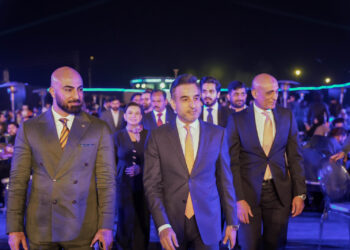Karachi: Signs of economic recovery are not clear, inflation has been contained to single digits, the cost of government borrowing has come down from 25 percent to 12 percent, remittances are coming in at US$3 billion per month and trade and current account balances are under control.
The IMF bailout has opened up avenues for funds to be collected from multilateral and bilateral lenders and the stock market index is moving towards 100,000 points.
These are early signs of hope but the real challenge lies ahead. We stand on the brink of economic transformation, a rare opportunity to reshape Pakistan’s trajectory but this moment demands vision and discipline.
Moving beyond 3 percent consumption growth risks re-creating trade imbalances. It is time to set a sustainable path towards 5-6 percent growth through structural reforms and bold investment.
This is not just a government effort, but it requires concerted action by Pakistan’s business elite and policymakers alike. Together, we can build a Pakistan that drives innovation, investment, and growth.
While fixing the energy sector and renegotiating IPP agreements is essential, the country’s future depends on promoting both foreign and domestic investment in sectors where Pakistan has a natural advantage.
The focus on FDI is timely, with SIFC barriers removed, investor concerns addressed, and stakeholders united. Pakistan must attract investments that align with national priorities, meaning that every dollar of investment should yield significant benefits, including job creation, tax revenue, increased exports, reduced imports, and strengthened industries.
Our local entrepreneurs and industrialists are no less capable than foreign investors. By mobilizing domestic capital, we can drive growth without undue dependence on international funds. As a nation, we must use our resources in projects that redefine Pakistan’s economic identity, including transforming the mainline railway into a modern transport corridor, establishing IT parks and digital universities across the country, and building state-of-the-art petrochemical plants to reduce import dependence.
We have the skills, the resources, and the determination; what we need is to prioritize long-term prosperity over short-term gains.
Overseas Pakistanis should be offered a Better Pakistan Certificate (BPC). This is a crucial decade for Pakistan. Policymakers must sustain fiscal and economic reforms. For this dream to become a reality, we must work with integrity, sincerity, and a shared vision. The world is watching, but more importantly, future generations of Pakistanis are trusting us to build a nation according to their aspirations.

























